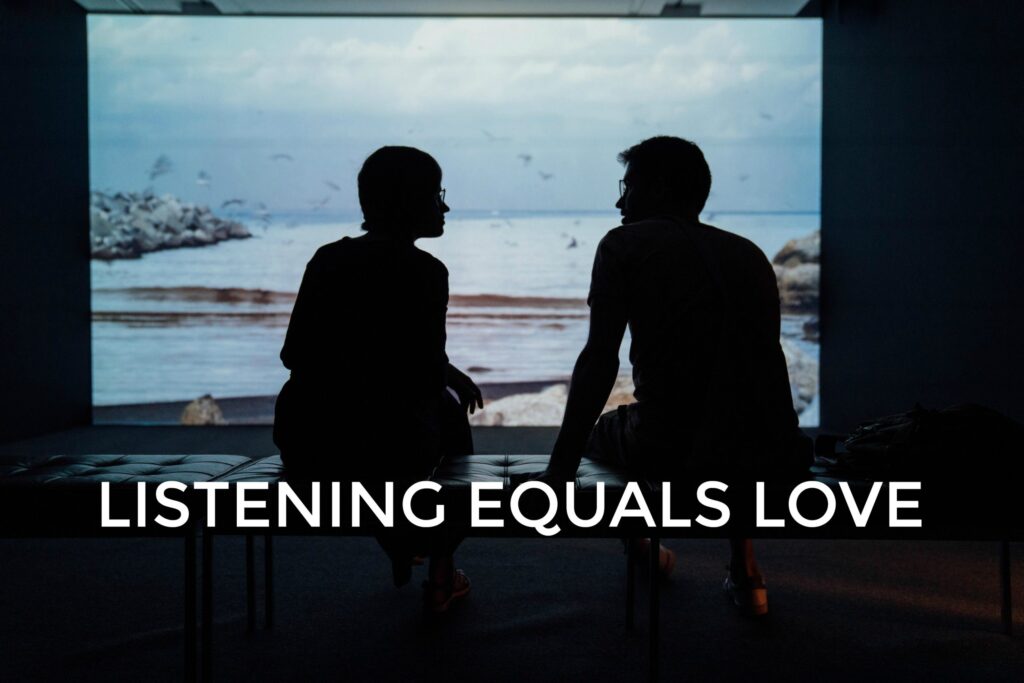
In order to make a living while I am building my mediation business, I work as an adjunct professor of Acting at a local college. One of the basic but most difficult aspects of acting to be learned is the art of listening. Not just pretending to listen but actually listening to
lines that you sometimes hear hundreds of times during the course of a run that could last three weeks, or three years. The professional actor knows that every time they go onstage they have to make the audience believe that everything that is happening on that stage is happening in real time and for the first time. That is not easy.
For the student actor, whose ability to concentrate on one thing at a time has been whittled down by cell phone use and social media, it has become unbelievably difficult to learn how to listen and focus. Joey, in FRIENDS, while teaching an acting course says “Now, duh one thing you gotta know about acting is that acting…is reacting.” Pause as the students look at him blankly. Then, second-guessing himself, he adds “And that don’t mean acting twice.”
Silly, but true. The lines spoken by an actor are usually said in response to lines spoken by another actor and if it doesn’t look like they’re believably listening and reacting to each other the scene won’t work. One of the many paradoxes about acting is that you have to pretend but you have to make it look real simultaneously.
Being heard is the gift a mediator gives to their clients who, up until that day, may feel they have not been heard or taken seriously…by anyone for a long time. They are lost in the morass of their conflict. The mediator’s ability to really listen AND to make the participant feel like they’ve been heard becomes an invaluable tool in a mediator’s arsenal.
The difference between acting and mediating is that, as a mediator, you can’t pretend. The similarity between acting and mediating is that for both you have to be present. Acting is one of the most disciplined crafts in the world. It demands you are “present” for every performance. That means you have to be 100% in the character you are creating onstage, not distracted by other things, but fully focused on listening and reacting to lines you’ve heard a million times and yet tonight, as per the audience, it is for the very first time.
Mediating is the same. You have to show up completely ready to shed your biases and preconceived ideas and be ready to put yourself 100% in the arena that has been constructed by the combatants. You have to take over and run that arena. It is remarkably disciplined and creative. Spontaneous even. And perhaps, other than an agreement, the
most valuable thing you can give a client is to leave them feeling like they’ve been heard.
And that don’t mean mediating twice.
